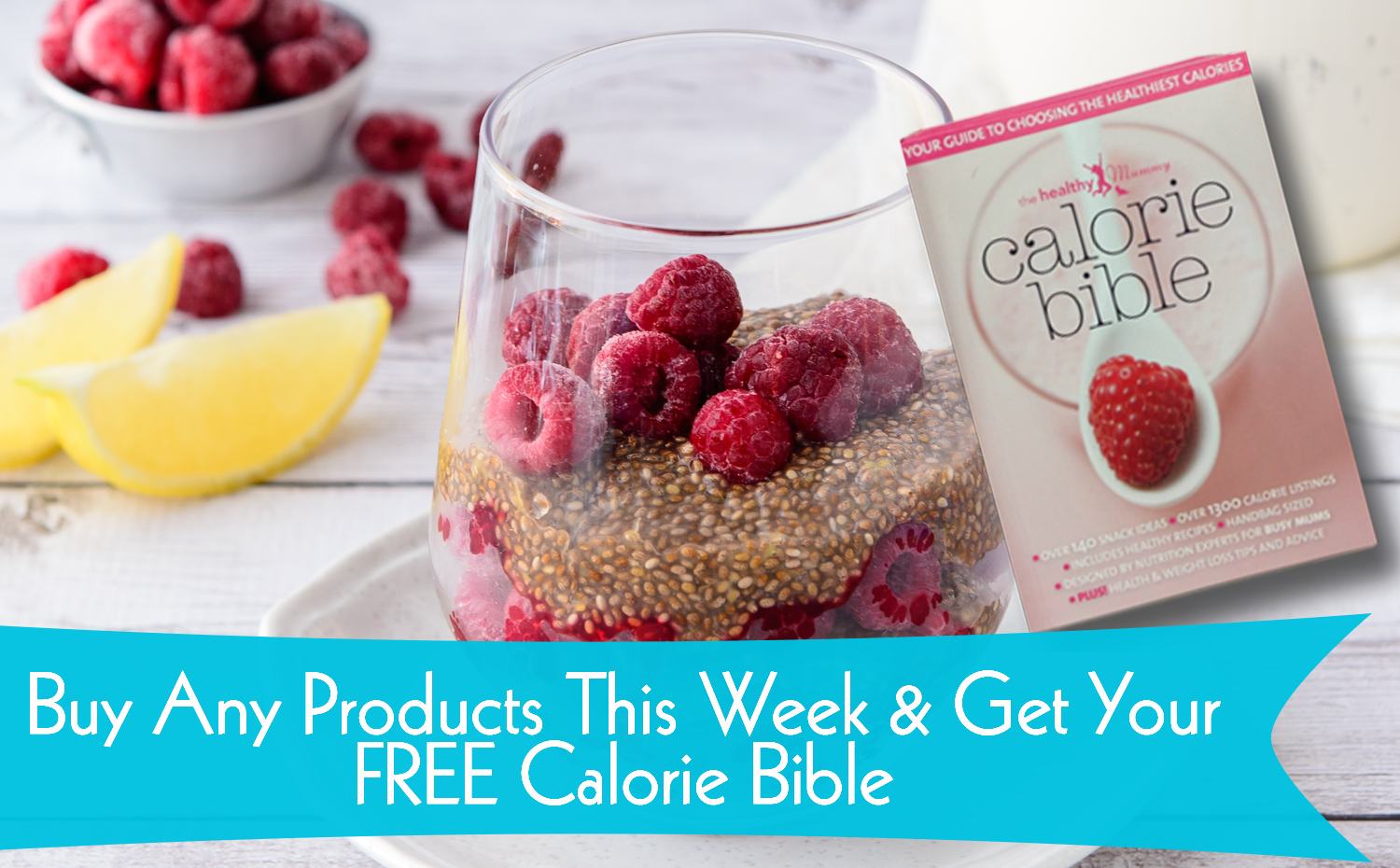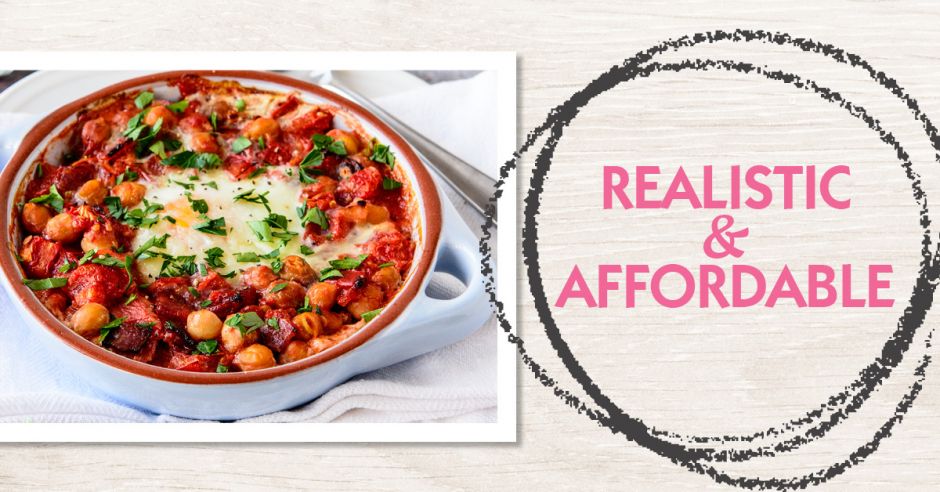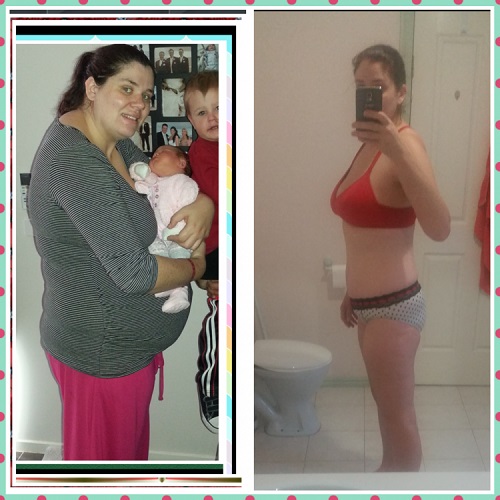Kilojoules and calories are just two different measures of the same thing: energy. One calorie equals approximately 4 .2 kilojoules and to convert calories to kilojoules, you can simply multiply the calorie count by 4.2.
How many calories or kilojoules we should eat depends on what our individual BMR is. And as everyone has a different BMR, there is not a ‘one size fits all’ calorie or kilojoule allowance to follow.
If you are trying to lose weight, it is important to work out your BMR to see how many calories your own body needs and then work out your body’s daily energy requirements; you can work out both on our online calculators here
As a guide to minimum calorie intake, we would recommend that calorie levels never drops below 1200 calories per day for women (please see below for additional calorie requirements for breastfeeding women) or 1800 calories per day for men.
It is also important not to consume calories below your BMR which can interfere with your metabolism.
Another key point is to ensure that the calories you are consuming are nutrient-dense calories so that as well as giving your body the energy and fuel it needs to function, you are also providing your body with essential vitamins and minerals to help it to be in its best health – which is why we created our Healthy Mummy Calorie Bible – so that you had an easy handbag sized reference to healthy calories.
Get your FREE copy of the book

Visit the shop here
Please note that breastfeeding mothers on average require an extra 500 calories (2,200 kilojoules) per day on top of their usual daily energy needs.
If you are trying to lose weight when breastfeeding, we recommend a gradual weight loss of up to 500g per week.
So in light of this thinking, here are ten low calorie foods that also pack a nutritional punch – the calories and kilojoules listed are all per 100g
Top Ten Low Calorie Foods High In Nutrition
1) Broccoli 24 (100kJ) – Of all the cruciferous vegetables, broccoli stands out as the most concentrated source of vitamin C and vitamin A (mostly as beta-carotene) – two essential antioxidants that have been linked to a reduced risk of cataracts and heart disease .
2) Carrots 23 (96kJ) – Rich in beta-carotene (a form of vitamin A), which acts as an antioxidant to mop up harmful free radicals, helping to prevent premature aging. Raw carrots are an ideal snack .
3) Cherries 60 (251kJ) – Contain anthocyanins, antioxidants known to reduce belly fat by switching on fat-burning enzymes.
4) Egg Whites 52 (669kJ) – Egg whites are a healthy choice because they’re low in calories and high in protein and do not contain saturated fat or cholesterol . You can easily swap egg whites in any recipe that calls for whole eggs .
5) Live Natural Yoghurt 102 (427kJ) – Rich in bone-strengthening calcium and a delicious substitute for mayonnaise, creams and dressings, as well as a great choice for desserts and snacks . Aim for reduced-fat varieties.
6) Lentils 91 (381kJ) – A quick and easy source of protein and vitamins, and far less fatty than red meat .
7) Mandarins 40 (168kJ) – Very rich in vitamin C. Two small mandarins will supply 35% of the daily recommended intake of Vitamin C .
8) Oats 114/30g (477kJ) – Contain beta-glucan (a type of fibre), which has cholesterol-lowering benefits and keeps hunger pangs at bay
9) Reduced Fat Cottage Cheese 90 (380kJ) – Low in fat but still contains the calcium and protein found in more fatty varieties of cheese.
10) White Fish 84 (351kJ) – A nutrient powerhouse, white fish is a lean source of protein, low GI carbohydrates and both types of fibres (soluble and insoluble).
Join our 28 Day Weight Loss Challenge and get access to:
- 28 Days of family friendly healthy meals
- Personalised weekly shopping lists and customisable meal plans
- Access to the exclusive challenge 1000+ recipe hub
- 28 days of effective at home exercises to fit into your busy day
- Expert advice and support from the team and 1000’s of other mums on the challenge
- See all the details and join here
Results from mums on the 28 Day Challenge
Mums lose an average of 4-6kg (8-13 pounds) on our 28 Day Challenge and below are some of the amazing results from mums JUST LIKE YOU who are already using the 28 Day Challenge and losing tummy fat – make the change and join them today too!
You can see lots of results and you can join here too
Erin Loses a MASSIVE 44.7kgs on our 28 Day Challenges
Erin says: “I love the 28 day challenge! It takes all the guess work of “what do i have for dinner” and fumbling around the fridge looking for ingredients before deciding on something “easy” (and usually not healthy!) The best thing is, after doing my weekly shop once the shopping list comes out I have everything I need to make something HEALTHY AND EASY!”
DON’T delay!
Join today and become healthier and fitter this Winter. Join 1000’s of other mums on the same journey and be supported every step of the way.
You won’t regret it!





